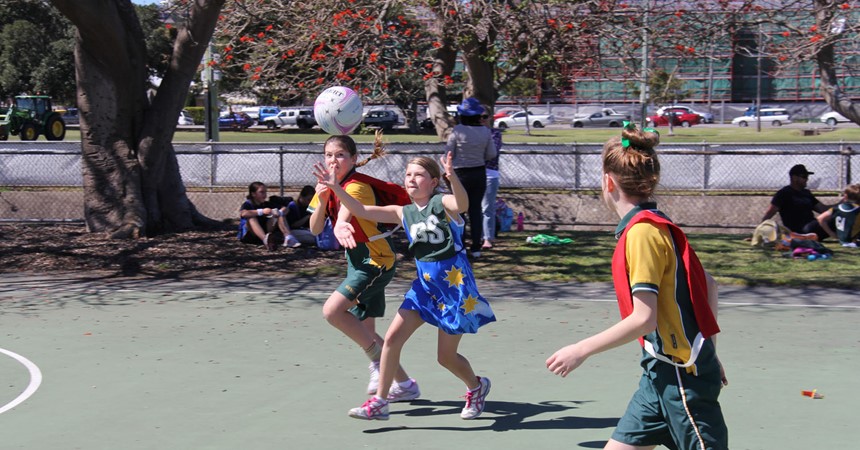Sport – the great Australian pastime. But what happens when the known benefits, particularly of team sport, turn sour? No longer is playing the game about fitness, fun, friendship and learning lessons that stick by you throughout life. With alleged drug taking, steroid abuse, parental misbehaviour and player court of law appearances dominating the news, has playing the game gone beyond an activity that families can participate in, watch together and enjoy discussing around the family dinner table?
Don’t despair, all is not lost! How can you, as a parent, coach or family member, play a role in instilling good values in children and role model the expectations that society holds about sport as a healthy pursuit that can be enjoyed by the young and not-so-young alike? Equally, what are the influences that are undermining and distorting sport’s ideals and how can they be stopped?
We all have our own values, beliefs and attitudes that have shaped our behaviour throughout the course of our lives. Family, friends, community and experiences all contribute to our sense of self and how we view the world. We need to be aware of our own personal values, beliefs, attitudes, principles and standards, as they guide the way we live our lives. The decisions we make and attitudes we display towards coaches, officials, players and spectators are passed down to our children.
Sport promotes relationships, as does our faith. If we parallel our values in sport to the gospel values we learn within our faith there is little chance that bad behaviour will be a dominant force.
Just how might this work? Gospel values are those behaviours modelled by Jesus (perhaps he played for Jerusalem FC), just as good sportsmanship is modelled by those we admire in sport. These values include:
• Reaching out to people – Stop and take the time to get to know those in your team. Is there an unmet need that you can assist with?
• Drawing people into respectful relationships – If there’s a player in the team who is disrespectful to opponents, offer to work with the coach to assist them to play by the rules.
• Calling people to belong – The idea of a team sport is to learn to care, share and work together. Invite new team members to embrace the club culture and share the team spirit.
• Do the right thing – Even when a decision goes against what you believe to be right, accept that the official is doing their job in the interest of the game.
• Love one another – A sporting season can last up to eight months, starting with pre-season, through to the grand final, making it a very enjoyable period if members of the team have a harmonious relationship.
Values can influence many of the judgments made on the field and therefore impact on player behaviour.
Let’s look at some values that are pertinent to sport:
• Manners – Are they old fashioned? Do they hold a high or low value in your life? Remember to always shake the hand of the opposing team members, regardless of the outcome.
• Pride – Are there things you need to be proud of? Do you value pride or do you value humility? Winners may be grinners, but have you made the non winners feel special, regardless of their defeat?
• Appearance – How important is it to be identified by a team uniform? Be sure to wear the team colours with pride, especially if you are a fan.
• Behaviour on the sports field – What behaviours do you value? Sportsmanship? Winning? Team spirit? Individual glory? As part of our faith life we value pastoral care. Ensure this is evident in the sports arena.
• Family life – What do you value about family life? How can this be perpetuated to your team members?
• Loyalty – Stick with the team and players and look for ways to grow together.
There are also dominant values that are widely shared amongst a playing group, community or culture. Some of those values could be:
• Family – Caring for each other, family comes first; the team could become your ‘playing family’.
• Peers – The importance of friendship, of doing things that your peers approve of; ensure that the integrity of the playing group is paramount.
• Playing ground – Doing your job properly whether player or administrator.
What are our strengths and how can we ensure that sport can thrive and nourish our society? Equally, what are the influences that are undermining and distorting sport’s ideals?
Whilst the lessons learnt from participating in sport include the value of team work, experiencing the high of winning, acceptance of losing and forging friendships, there is also a dark side. The use of drugs, cheating, gambling, violence, parental misbehaviour and domestic abuse rear their ugly head amongst players and spectators. We need to ask ourselves "Why are we doing what we are we doing – are our actions within the code of conduct?" We need to identify the consequences of our actions for ourselves and others, for example, will appearing in front of a judiciary and serving a suspension leave the team with depleted playing ranks? We should always consider others and better options if necessary.
It is important to not only have an understanding of your value system, but to appreciate that your values underpin your beliefs, which in turn affect your behaviour.
A strong sense of social justice is alive in our community. Just as we strive for gold on the sporting field so, too, do we strive to mirror and celebrate the many blessings that sport offers us into all facets of our life.
The Australian Catholic Bishops Social Justice Statement for 2014–2015 has a distinct sporting flavour, titled ‘A Crown for Australia: Striving for the best in our sporting nation’. The statement is a challenge to each of us to look at the place of sport in our lives.
To listen to Helene O’Neill discuss the statement with Bishop Bill Wright visit mn.catholic.org.au/sj




























































































